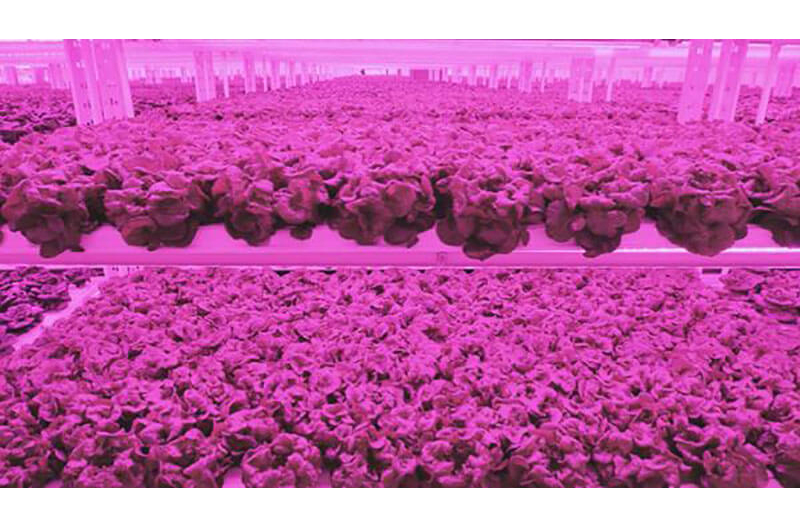Technology-driven vertical farming company Kalera says it will open a new state-of-the-art growing facility in Atlanta, Georgia, in early 2021. The new Atlanta facility is the next step in Kalera’s domestic and international expansion plan to bring consumers fresh leafy greens right where they are.
The Orlando, Florida-based company was founded by two Cristians—Cristian Toma and the late Cristian Ivanescu. Toma now is chief technology officer for Kalera. The two men came to Florida to work on a project, envisioned by the founder of Subway, to make a city self-sustainable. Ivanescu and Toma became involved in hydroponics and, even after the original project went awry, they decided to continue their work, according to Kalera CEO Daniel Malechuk. That work, he told The Shelby Report in a 2019 interview, is “using technology to change the way that the world eats.”
By placing its farms directly in the communities that they serve, Kalera is able to supply national retailers and foodservice distributors without a long haul across the country, guaranteeing that its leafy greens are fresher longer and much safer than field-grown lettuce.
The new facility is being announced less than two months after Kalera opened its second Orlando farm. While its Orlando farm is currently the highest production volume vertical farm in the Southeast, the new Atlanta facility will be more than double the size and able to produce 11 million heads of lettuce annually while generating approximately 75 jobs for the local community.
As was the case in Orlando, Kalera is able to quickly open its newest growing facility in Atlanta with its proprietary technology as a result of a streamlined design and construction process, further illustrating its ability to rapidly scale and expand its vertical farms. As Kalera accelerates its growth over the next few years, it will continue to build additional facilities, expanding production capacity throughout the U.S. and internationally.
“Atlanta is home to several leading foodservice and retail companies, and as a city that appreciates great food, access to fresh, clean, local produce is key. After our success in Orlando, Atlanta was the next logical step in our expansion plans,” Malechuk said. “Today, more than ever, consumers are focused on understanding where their product comes from, how far it’s traveled to get to them, how many times it has been handled and how safe and clean it is.”
“By leveraging new developments in science and technology, Kalera is redefining what pick-to-plate freshness means for the future as well as positioning us as an industry leader in the local ag-tech revolution,” Toma said. “At this critical time, we are excited to be a reliable, year-round source for non-GMO, pesticide-free leafy greens, lettuces and microgreens that are always of the highest quality. When consumers choose Kalera greens, they know that they’re making the safe, locally sourced choice for themselves and their families.”
The company utilizes cleanroom technology and processes to eliminate the use of chemicals and remove exposure to pathogens. With indoor facilities situated right where the demand is, Kalera is able to supply an abundance of produce locally, eliminating the need to travel long distances when shipping perishable products. This means Kalera can deliver product to customers within hours of harvest rather than days or weeks. Kalera’s plants grow while consuming 95 percent less water compared to field farming.
Advances in technology have helped bring the cost of hydroponic production down, as LED lighting has become more efficient and less expensive. The lights run 24/7/365 and, through different light spectrums, Kalera can manipulate the color of the lettuce as it grows, Malechuk said. Also, the size of the plants is extremely uniform, “which is a huge benefit to the chefs and people using them because they get the consistent product all the time, every time,” he said.
Another benefit of the hydroponic process is the fact it uses 5 percent of the water that’s used in California for growing purposes. There’s no soil involved, which means no pesticides are used.
“There will never be any bugs in our product because we use clean-room technology—no bugs, no soil, no sprinklers,” Malechuk said. “The product is the same every single time. Every time the chef gets it, it’s fresh, it’s uniform, it’s exactly the same.”

